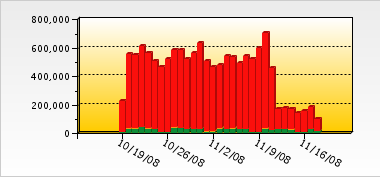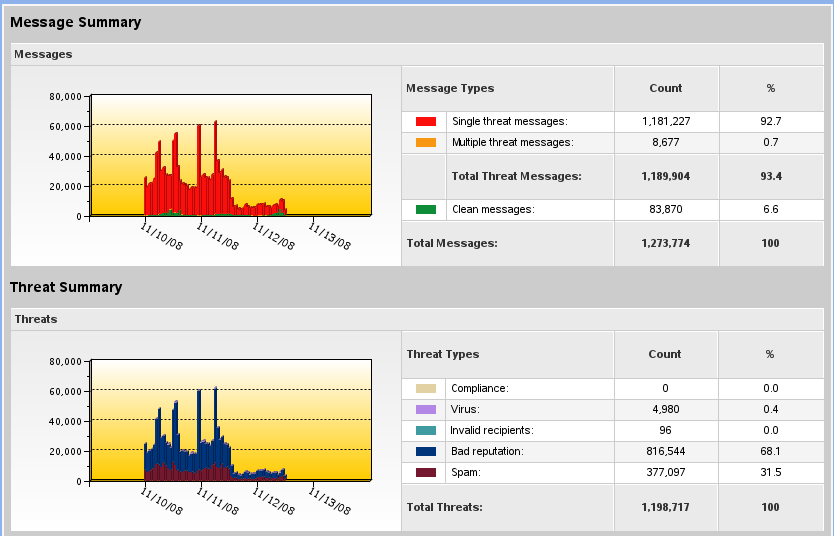I read an excerpt of a book a week or so ago. Always dangerous, as it lacks context. But the general principal of the book was the observation that to get really really good at something requires about 10,000 hours of practice. There are no 'naturals', just people who are naturally more pig-headed than others who can get to 10K hours.
10K hours is 2-4 hours a day for 10 years.
The studies were about things like child prodigies, or top tier athletes who get Olympic gold at age 22, and retire by 30. That sort of thing. It seems that almost all of these people started their thing by age 6, and by age 8 there was already a break between the kids who'd ultimately reach the peak of their field and those who'd merely be very good. The ones destined for peak were giving 2-3 hours a day at age 8, where the other group had cut back.
I believe this also applies to technical expertise. As anyone who has done any job searching in my field knows, there are real breaks for experience levels; 1-3 years, 4-6 years, 10+. Those of us in the 10+ area (and by now I am there with NetWare, and by the end of December I can claim that with Windows) are pretty much technical experts. We've put in the time over the years to get good.
However, we work in a field where, "Change or Die," is an accurate mantra. The IT industry of 2008 is markedly different than it was in 1998. Windows NT installs right now are laughed at. Very, very little of the operating systems and software in active use in 1998 is still able to be on a support contract. It is hard to be a 10K-hour expert in something in our field, you have to put in 8 hours a day for 5 years.
My first real exposure to NetWare was in a class I took for my CNA back in the Autumn of 1996. That was on NetWare 4.0, so at least my first experience was with NDS. In fact, my first job with NetWare was with 3.x, so I had to learn bindary on-the-job.
I consider myself to be an expert in NetWare. I've been actively administering it for 11 years now, so if I'm not across the 10K line I'm really close to it. This is only possible because the 'change or die' mantra has not applied to NetWare over the years. Lets take a look at the biggest disruptions of how things work in NetWare (kernel). This isn't incremental changes, this is fundamental re-learnings of how things work. Sort of like what all the Windows engineers had to go through when Active Directory came onto the scene.
Over the last 12 years NetWare has remained markedly static. This has allowed enough time for people who don't do this every waking moment to achieve a high level of expertise with NetWare. While this is good for NetWare, it unfortunately shows how NetWare has lagged behind the rest of the industry.
It is my opinion that OES-Linux represents a decade of pent up change that needed to happen in NetWare but didn't. This is why old time NetWare admins are having such trouble moving to Linux, they're being asked to support an Operating System that they don't have anywhere near the same level of expertise in and that is uncomfortable. I know I'm moving from an OS that I know exceedingly well to one where there are still, "here be monsters," marked out on my mental map. I'm also having to give up, "10+ year experience with NetWare," in favor of, "2-4 years of experience with Linux," and that doesn't feel good professionally.
But... that is the nature of our field. Just when we get really good at something, it's time to throw it out and learn something new. That something may be an incremental change from what we know (Windows 2003 vs Windows 2000) or a complete break (NT Domains vs AD Tree). But, learn we must. Us NetWare wonks have just been sheltered from it for some time.
10K hours is 2-4 hours a day for 10 years.
The studies were about things like child prodigies, or top tier athletes who get Olympic gold at age 22, and retire by 30. That sort of thing. It seems that almost all of these people started their thing by age 6, and by age 8 there was already a break between the kids who'd ultimately reach the peak of their field and those who'd merely be very good. The ones destined for peak were giving 2-3 hours a day at age 8, where the other group had cut back.
I believe this also applies to technical expertise. As anyone who has done any job searching in my field knows, there are real breaks for experience levels; 1-3 years, 4-6 years, 10+. Those of us in the 10+ area (and by now I am there with NetWare, and by the end of December I can claim that with Windows) are pretty much technical experts. We've put in the time over the years to get good.
However, we work in a field where, "Change or Die," is an accurate mantra. The IT industry of 2008 is markedly different than it was in 1998. Windows NT installs right now are laughed at. Very, very little of the operating systems and software in active use in 1998 is still able to be on a support contract. It is hard to be a 10K-hour expert in something in our field, you have to put in 8 hours a day for 5 years.
My first real exposure to NetWare was in a class I took for my CNA back in the Autumn of 1996. That was on NetWare 4.0, so at least my first experience was with NDS. In fact, my first job with NetWare was with 3.x, so I had to learn bindary on-the-job.
I consider myself to be an expert in NetWare. I've been actively administering it for 11 years now, so if I'm not across the 10K line I'm really close to it. This is only possible because the 'change or die' mantra has not applied to NetWare over the years. Lets take a look at the biggest disruptions of how things work in NetWare (kernel). This isn't incremental changes, this is fundamental re-learnings of how things work. Sort of like what all the Windows engineers had to go through when Active Directory came onto the scene.
- The move to TCP/IP. This by far is the biggest disruption since 1996. NetWare 5.0(?) introduced the ability to do NCP over TCP/IP natively, and not tunneled IPX-over-IP. This required replacing IPX SAP, something the routers just did, with SLP, a service that needed configuration and setup.
- The NSS file-system. This was a much lesser move than the TCP/IP one, as it worked on a general level (trustees, quotas, etc) the same as TFS did. Tweaking it for performance, however, was a dark art for many years and much learning was derived out of this.
- Protected memory. A concept familiar to anyone who has used Windows or Linux, and all NetWare admins are by now administering one or both of these OS's. While some modules can't use it for whatever reason (iPrint, NetStorage) others (GroupWise) could.
- Native File Access Pack. NetWare could do AFP since the NW3 days, the same for NFS. SMB was another story. It was with NetWare 5.1 that NFAP came on to the scene, and NetWare 6.0 where it came built in and performed much better. The ability to use protocols other than NCP for your Windows clients was embraced by many shops.
Over the last 12 years NetWare has remained markedly static. This has allowed enough time for people who don't do this every waking moment to achieve a high level of expertise with NetWare. While this is good for NetWare, it unfortunately shows how NetWare has lagged behind the rest of the industry.
It is my opinion that OES-Linux represents a decade of pent up change that needed to happen in NetWare but didn't. This is why old time NetWare admins are having such trouble moving to Linux, they're being asked to support an Operating System that they don't have anywhere near the same level of expertise in and that is uncomfortable. I know I'm moving from an OS that I know exceedingly well to one where there are still, "here be monsters," marked out on my mental map. I'm also having to give up, "10+ year experience with NetWare," in favor of, "2-4 years of experience with Linux," and that doesn't feel good professionally.
But... that is the nature of our field. Just when we get really good at something, it's time to throw it out and learn something new. That something may be an incremental change from what we know (Windows 2003 vs Windows 2000) or a complete break (NT Domains vs AD Tree). But, learn we must. Us NetWare wonks have just been sheltered from it for some time.

